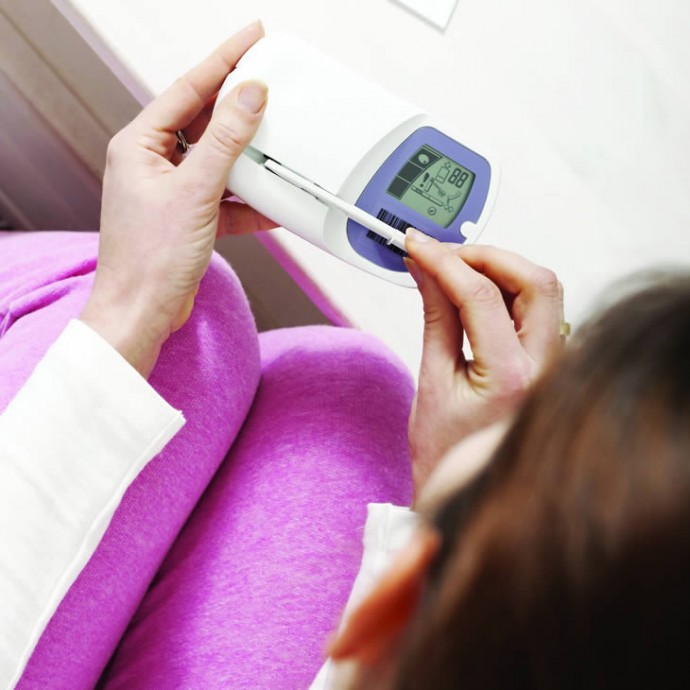The dust has finally settled from your wedding and your honeymoon, and you are all set to embark on the next stage of your marriage – that is, to expand your family. Having a baby is not an exact science, but there are certain things that you can do to boost your chances of getting pregnant. The checklist below will help guide you and your spouse in your preparation of having a baby.
Getting Started
Birth control pills prevent ovulation (the release of an egg during the monthly cycle). A woman cannot get pregnant if she does not ovulate because there is no egg to be fertilised. Once you stop taking these pills, your body should start ovulating again within a few weeks.
A woman is most fertile during ovulation. Ovulation usually occurs between 12 and 14 days before your period starts. For example, if you have a regular 28- day menstrual cycle, the first day of your period should be counted as day one of your ovulation cycle. Your “fertile window” will likely bearound days 12 to 17.
An increase in BBT occurs with ovulation due to a spike in progesterone levels. Measure your BBT with a special thermometer, ideally before you get out of bed. BBT typically goes up about 24 hours following ovulation, so charting your temperature doesn’t help you predict ovulation for your current cycle. However, it can help predict ovulation for subsequent cycles.
Heat can kill or decrease sperm production, so wannabe daddies may want to stay away from hot baths, saunas or wearing tight underwear. If your job involves working in a hot environment, taking regular breaks indoors can help keep your testicles cool.
This goes without saying. Find out when you are ovulating, then move into some sexy bedroom activities with your spouse. Having sex daily during the days leading up to ovulation may give you a better chance of conceiving.
Diet and Fitness

Women who smoke have lowered fertility compared to non-smokers. Smoking can lessen the success of fertility treatment or result in a higher miscarriage and still-birth rate. Male smokers have reduced semen volume and sperm count as well as abnormal sperm compared to non-smokers or ex-smokers.
Consuming alcohol increases the risk of miscarriage and affects foetal development. Women who are trying to get pregnant should refrain from drinking alcoholic beverages for at least a month before trying to conceive.
Adopt healthy eating habits that include a variety of foods from the five major food groups. They include: 1) grains, 2) fruits, 3) vegetables, 4) eggs, fish, meat, poultry and legumes, and 5) milk and milk products. Portion control is also important for a healthy diet.
Experts recommend at least 150 minutes of physical activity in a week to maintain good health. For potential mums, getting healthy and fit will help you cope better with pregnancy, which can place extra demands and strains on your body.
Folic acid helps the body produce healthy new cells. Getting enough folic acid before and during pregnancy can prevent major birth defects of a baby’s brain or spine. Folic acid sources include: leafy green vegetables, fruits and nuts. You can also take folic acid as a dietary supplement.
Doctors and Check-ups
An obstetrician-gynaecologist (OBGYN) can help assess your health, fitness and lifestyle habits, and identify areas that you may need to improve on in order to conceive successfully
If you have a medical condition such as asthma, diabetes or high blood pressure, try to get them under control before you start conceiving. Your healthcare provider may make adjustments to your medication or other treatments before pregnancy.
If you are currently on medication, you may want to consult a doctor or an OBGYN to determine if they are pregnancysafe. If they are not, ask your doctor to prescribe you ones that are safe.
to ensure that your teeth and gums are healthy before getting pregnant. Once you get pregnant, you are more likely to develop teeth and gum issues (e.g. tooth decay, gingivitis) due to pregnancy hormones and may be unable to undergo dental procedures like having an x-ray of your mouth.
Discuss any health problems that you or your spouse may be having. Medical conditions such as diabetes or heart disease often run in families, so it is good to get a clear picture of each other’s family medical history.
Infections like chicken pox, rubella and hepatitis B can harm your unborn baby if you catch them during pregnancy. Consult your doctor and get the necessary vaccinations before you try to conceive
It is good to have a birth plan ahead of time. Plan out details such as the nearest route to your hospital of choice, who to accompany you in the delivery room, and if you want a natural delivery or a caesarean section.
Generally, if you and your spouse are fertile, you have a good chance of getting pregnant within a year. Factors like your age, your lifestyle and your job may also influence your chances of pregnancy. Fertility experts in general recommend a more relaxed approach – simply by taking it easy and most importantly, to enjoy the baby-making process.







Comments